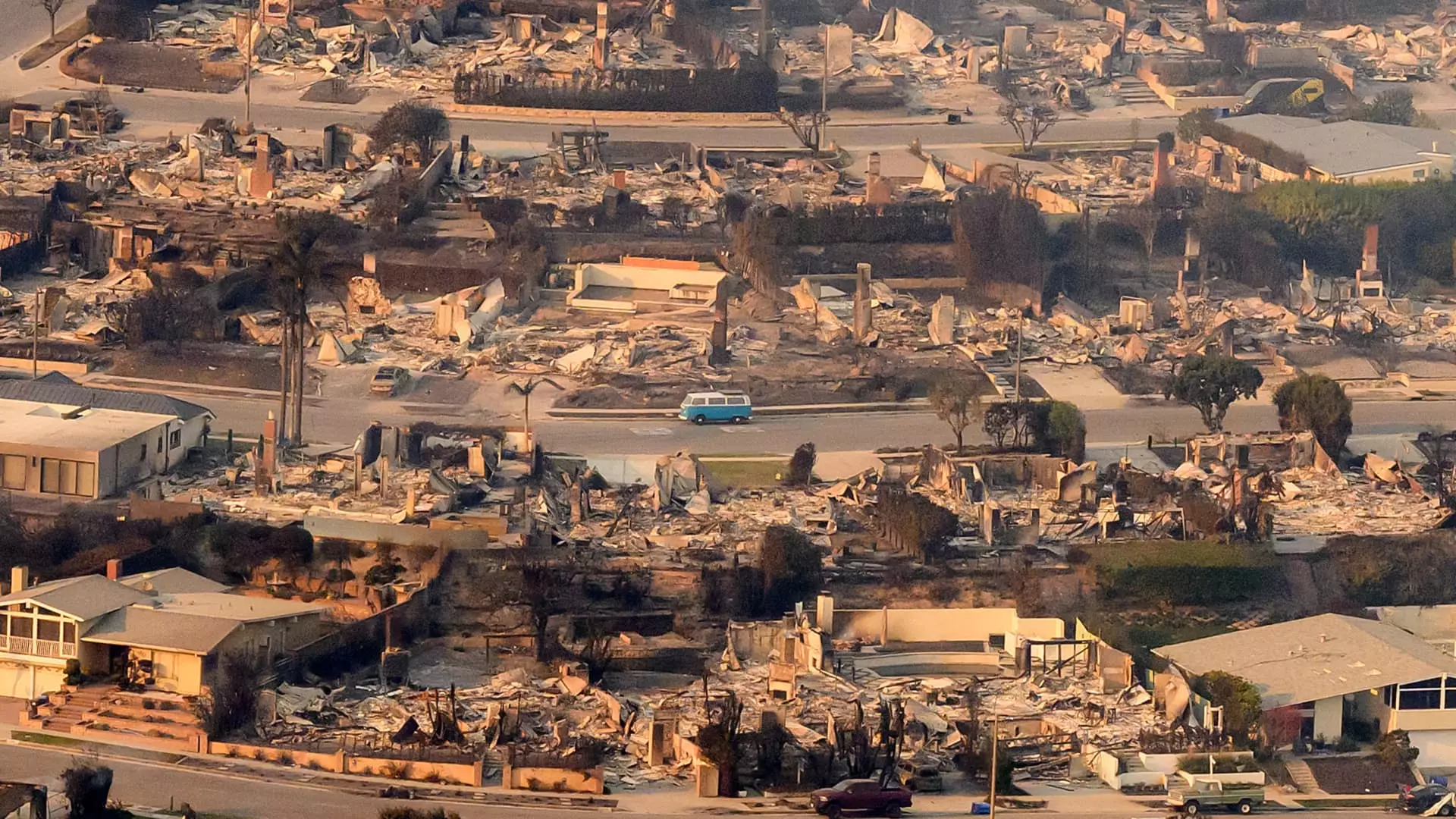The recent wildfires rampant in Los Angeles have sent shockwaves through the insurance market, particularly impacting companies heavily involved in California homeowners’ insurance. As the fires continue to wreak havoc, major insurers like Allstate and Chubb experienced a notable decline in stock prices. On one particularly tumultuous Friday, shares of Allstate and Chubb plummeted by 4%, while AIG and Travelers saw a 2% decrease. This rapid sell-off indicates not only investor anxiety regarding immediate losses but also raises questions about the long-term ramifications for these insurers as the scale of the disaster becomes apparent.
According to estimates from JPMorgan, the financial fallout from the current wildfires could reach unprecedented levels, with insured losses projected to surpass $20 billion. This figure could rise even further should the wildfires continue to spread, positioning this disaster to potentially become the costliest wildfire incident in California’s history. For context, that would eclipse the monumental $12.5 billion in insured damages from the infamous 2018 Camp Fire. Aon data highlights that this represents a significant concern for insurers who are already grappling with the implications of such large-scale disasters.
The Palisades Fire, currently the largest among five active blazes, has devastated over 17,000 acres and obliterated more than 1,000 structures in affluent areas where average home prices exceed $3 million. Such high-value properties elevate the financial stakes for insurers, which heightens the concern for firms like Chubb, whose clientele largely consists of high-net-worth individuals. The unique demographic of this market sector implies that any significant insured loss could have disproportionately severe implications for Chubb’s bottom line.
With rising estimates of insured losses, the reinsurance sector is not immune to these developments. Losses incurred from the wildfire crisis raise the likelihood of various insurers breaching their reinsurance attachments. Firm stock prices such as Arch Capital Group and RenaissanceRe Holdings exhibited declines of 2% and 1.5% respectively, demonstrating how intertwined the fates of primary insurers and their reinsurers can be during significant disasters. High-value areas put additional pressure on reinsurers, as they too face the risk of substantial payouts stemming from catastrophic events.
The latest wildfires in California serve as a potent reminder of the vulnerabilities within the homeowners’ insurance market and contribute to ongoing discussions about climate change and disaster preparedness. As the fallout continues to unfold, regulators, investors, and insurers must recalibrate their strategies to navigate a landscape increasingly threatened by such catastrophic events. As such, the repercussions of these blazes extend beyond the immediate loss of properties; they force a reevaluation of risk management approaches in an era that highlights the unpredictable nature of environmental calamities.

